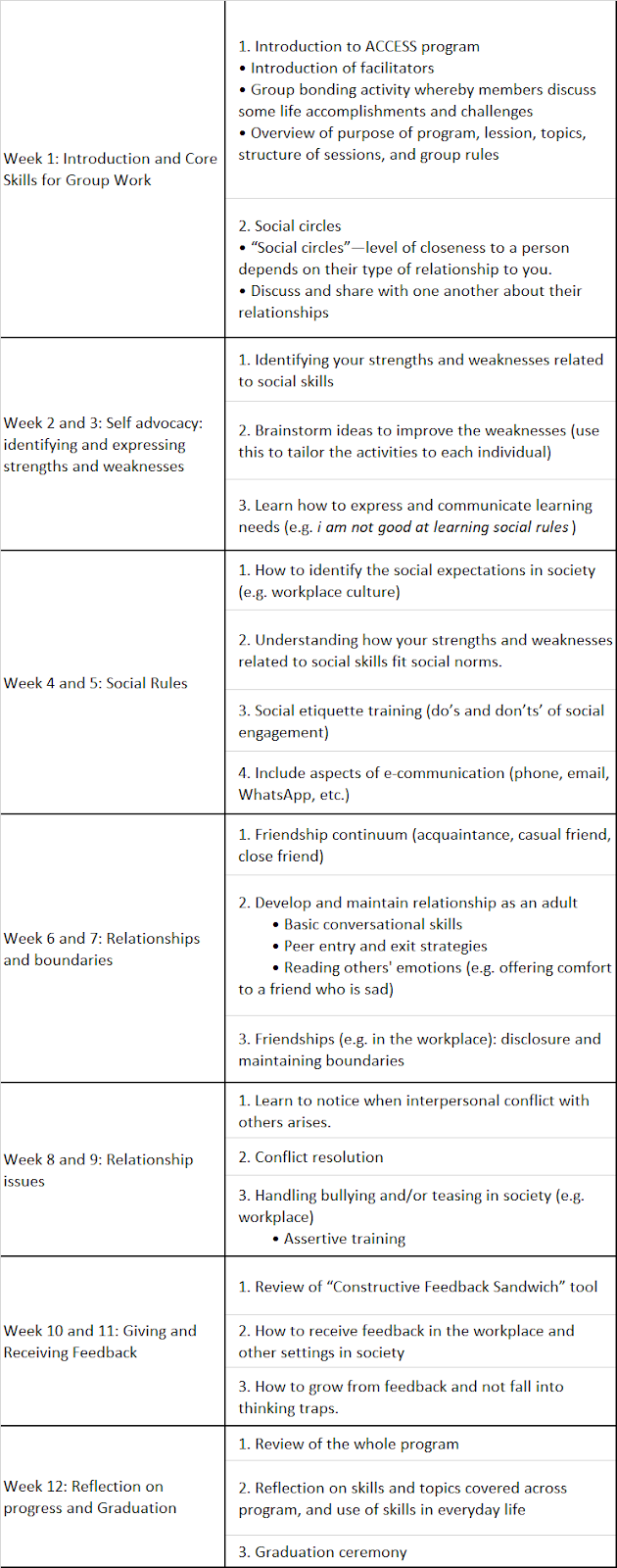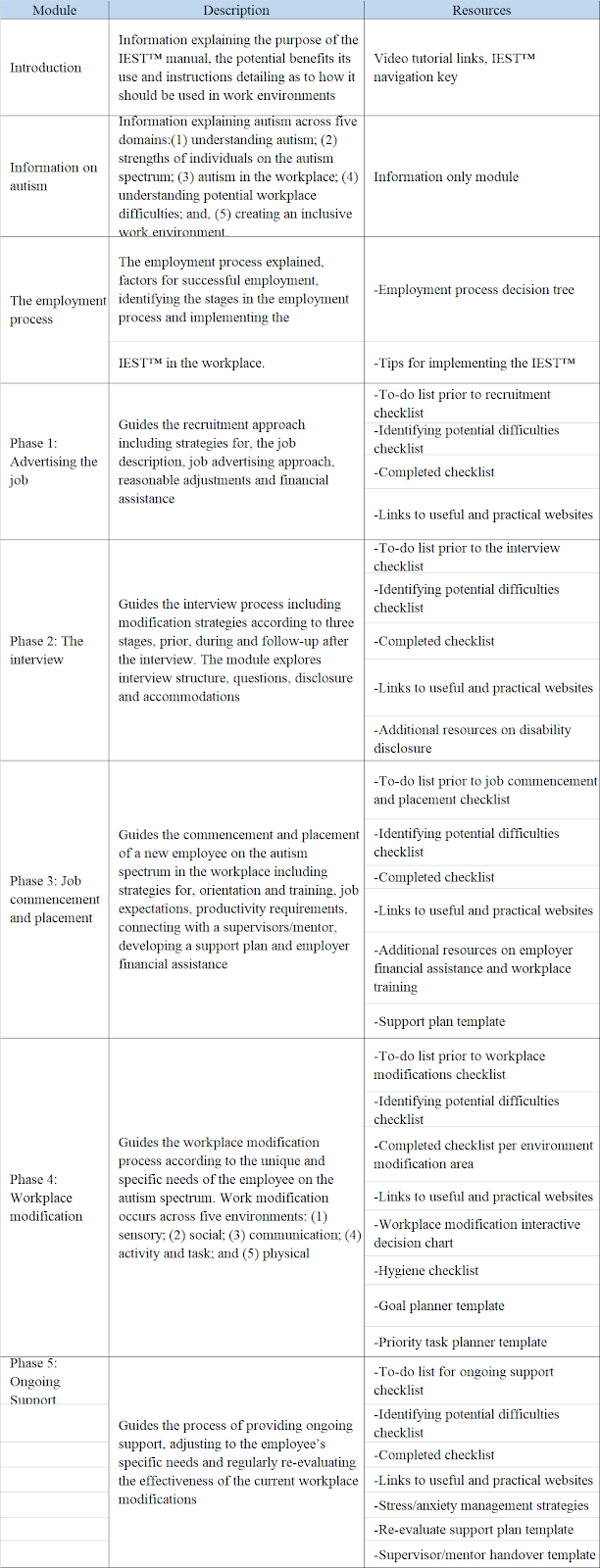Trainees' Intervention 1. Social Skills Problem Children and adolescents with learning disabilities (LD) tend to face issues with social competence because it requires a large set of skills such as basic understanding of age-appropriate behaviour and social environments (Milligan, Phillip, & Morgan, 2015). Notably, they have difficulty in vocalising personal needs at the workplace, and often require assistance to guide them to express their needs (Ineson, 2015). Solution - Smart Talk: A Social Skills Training Program Smart Talk is a hybrid program of the PEERS Program (Laugeson, Gantman, Kapp, Orenski, & Ellingsen, 2015) and the ACCESS Program (Oswald et al., 2018) This program will aim to improve social expression, social skills knowledge, social skills usage, and peer engagement in adults with Autism Spectrum Disorder (ASD) Graduate and undergraduate students in psychology will be trained to conduct the activities, and supervised by a clin...


